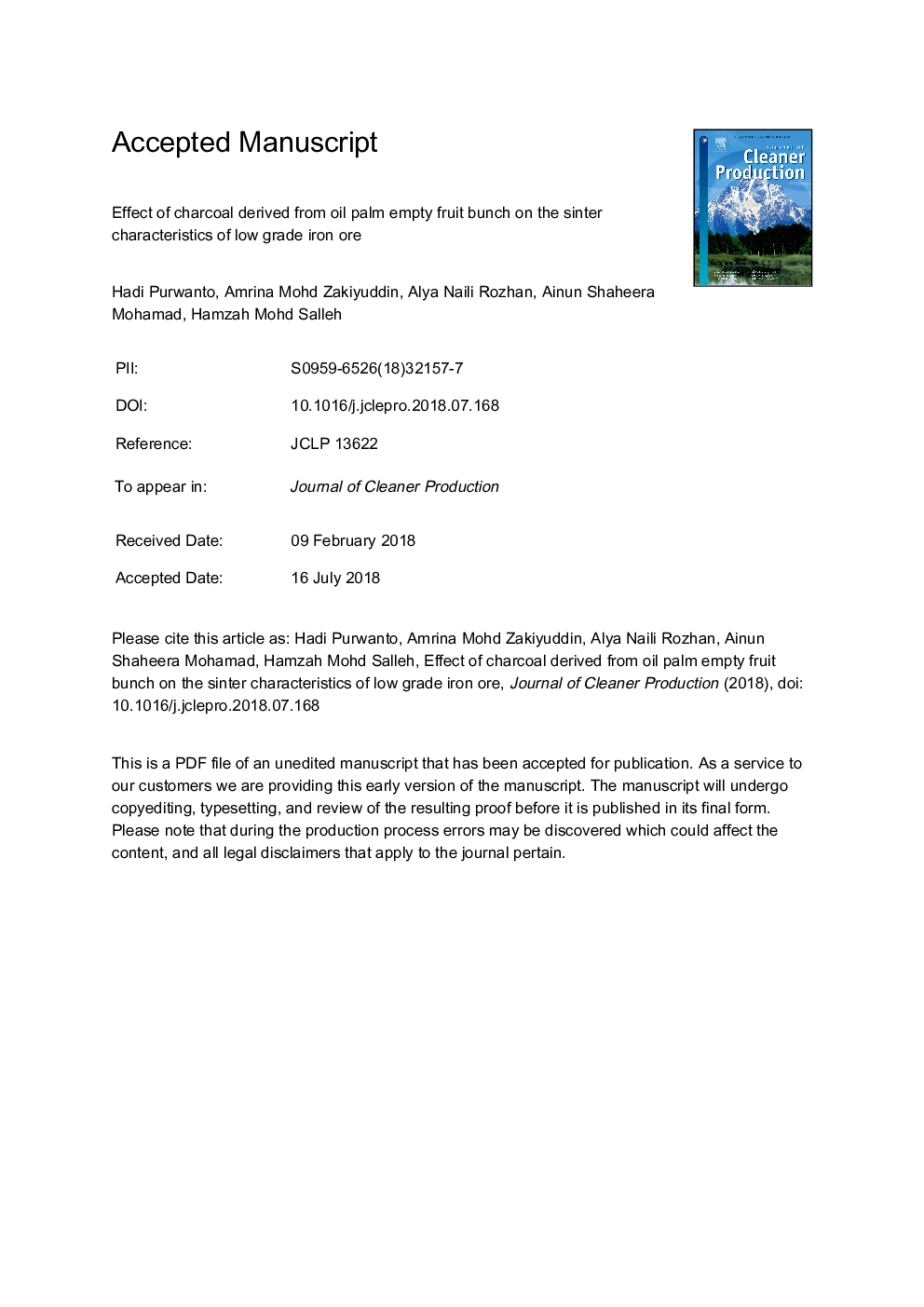| کد مقاله | کد نشریه | سال انتشار | مقاله انگلیسی | نسخه تمام متن |
|---|---|---|---|---|
| 8093394 | 1522052 | 2018 | 15 صفحه PDF | دانلود رایگان |
عنوان انگلیسی مقاله ISI
Effect of charcoal derived from oil palm empty fruit bunch on the sinter characteristics of low grade iron ore
ترجمه فارسی عنوان
اثر زغال چوب مشتق شده از خمیر میوه خالص نخل روغن بر خصوصیات ذرات سنگ معدن آهن کم
دانلود مقاله + سفارش ترجمه
دانلود مقاله ISI انگلیسی
رایگان برای ایرانیان
کلمات کلیدی
موضوعات مرتبط
مهندسی و علوم پایه
مهندسی انرژی
انرژی های تجدید پذیر، توسعه پایدار و محیط زیست
چکیده انگلیسی
Iron and steel industries are major contributors to global CO2 emissions. Biomass has been proposed as an alternative cleaner and renewable fuel to reduce emissions from these industries. During iron sintering a large amount of greenhouse gases is emitted; therefore, it is desirable to substitute fossil fuels with biomass. In this study, coke was substituted with charcoal derived from oil palm empty fruit bunch (EFB) as an alternative fuel for sintering of iron ore. The EFB was heated at 450â¯Â°C for 30â¯min to produce charcoal, and the mixture of iron ore mixed and charcoal was sintered by heating at various temperatures from 950 to 1150â¯Â°C in the presence of 1% limestone. The sintered particles coalesced to a larger extent at higher temperatures and the porosity significantly decreased. The average sinter particle density was found highest at 1150â¯Â°C. Sintering caused the porosity to decrease by â¼50.42% between the highest (1150â¯Â°C) and lowest (950â¯Â°C) temperature. With increasing heating temperature, the compressive strength of the sinter significantly increased. The morphology suggested that melt formation facilitates the coalescence of small pores and irregularly shaped pores into more rounded shapes pores, thus reducing the number of larger pores. Meanwhile, the addition of charcoal content has a detrimental effect on the properties of sinter. By increasing the charcoal content attributed to the decrement of apparent density and compressive strength of the sinter. The use of charcoal from EFB as an energy source for sintering Malaysian iron ore can potentially reduce CO2 emissions in iron-making processes approximately 183.3â¯kg per ton.
ناشر
Database: Elsevier - ScienceDirect (ساینس دایرکت)
Journal: Journal of Cleaner Production - Volume 200, 1 November 2018, Pages 954-959
Journal: Journal of Cleaner Production - Volume 200, 1 November 2018, Pages 954-959
نویسندگان
Hadi Purwanto, Amrina Mohd Zakiyuddin, Alya Naili Rozhan, Ainun Shaheera Mohamad, Hamzah Mohd Salleh,
